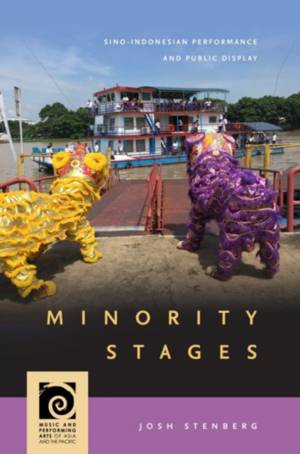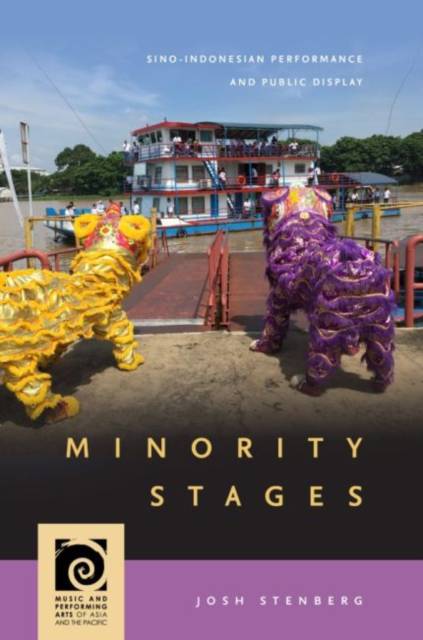
- Retrait gratuit dans votre magasin Club
- 7.000.000 titres dans notre catalogue
- Payer en toute sécurité
- Toujours un magasin près de chez vous
- Retrait gratuit dans votre magasin Club
- 7.000.0000 titres dans notre catalogue
- Payer en toute sécurité
- Toujours un magasin près de chez vous
Description
Minority Stages: Sino-Indonesian Performance and Public Display offers intriguing new perspectives on historical and contemporary Sino-Indonesian performance. For the first time in a major study, this community's diverse performance practices are brought together as a family of genres. Combining fieldwork with evidence from Indonesian, Chinese, and Dutch primary and secondary sources, Josh Stenberg takes a close look at Chinese Indonesian self-representation, covering genres from the Dutch colonial period to the present day.
From glove puppets of Chinese origin in East Java and Hakka religious processions in West Kalimantan, to wartime political theatre on Sumatra and contemporary Sino-Sundanese choirs and dance groups in Bandung, this book takes readers on a tour of hybrid and diverse expressions of identity, tracing the stories and strategies of minority self-representation over time. Each performance form is placed in its social and historical context, highlighting how Sino-Indonesian groups and individuals have represented themselves locally and nationally to the archipelago's majority population as well as to Indonesian state power. In the last twenty years, the long political suppression of manifestations of Chinese culture in Indonesia has lifted, and a wealth of evidence now coming to light shows how Sino-Indonesians have long been an integral part of Indonesian culture, including the performing arts. Valorizing that contribution challenges essentialist readings of ethnicity or minority, complicates the profile of a group that is often considered solely in socioeconomic terms, and enriches the understanding of Indonesian culture, Southeast Asian Chinese identities, and transnational cultural exchanges. Minority Stages helps counter the dangerous either/or thinking that is a mainstay of ethnic essentialism in general and of Chinese and Indonesian nationalisms in particular, by showing the fluidity and adaptability of Sino-Indonesian identity as expressed in performance and public display.Spécifications
Parties prenantes
- Auteur(s) :
- Editeur:
Contenu
- Nombre de pages :
- 274
- Langue:
- Anglais
- Collection :
Caractéristiques
- EAN:
- 9780824892456
- Date de parution :
- 31-10-21
- Format:
- Livre broché
- Format numérique:
- Trade paperback (VS)
- Dimensions :
- 152 mm x 229 mm
- Poids :
- 435 g

Les avis
Nous publions uniquement les avis qui respectent les conditions requises. Consultez nos conditions pour les avis.






